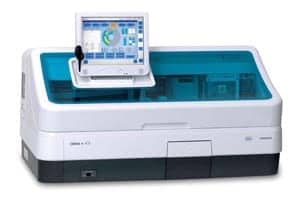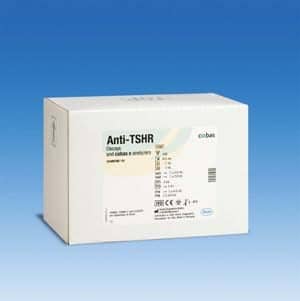The small, butterfly-shaped gland in the lower front of the neck is also subject to cancer. In 2008, an estimated 37,340 adults in the United States will be diagnosed with thyroid cancer, and about 1,590 of these men and women will die from the disease, according to the American Cancer Society. Americans develop an estimated 250,000 thyroid nodules each year, according to the ATA, which must be screened to detect malignancies.
Why is this tiny gland so important? It produces hormones-chemicals-that influence every organ, tissue, and cell of the body, and plays a very important role in controlling your body’s metabolism- that is, the rate at which your body uses energy. Its job is to take iodine from the food we eat to make the thyroid hormones thyroxine (T4) and triiodothyronine (T3), which are secreted into the blood and then carried to every tissue in the body. The thyroid hormones help the body use energy; stay warm; and keep the brain, heart, muscles, and other organs working as they should. If the thyroid does not work, then the body does not work.
Thyroid Hormones–Keys to Balance
The major thyroid hormone secreted by the thyroid gland is T4, called that because it contains four iodine atoms. T4 is converted to an active form, T3, by the removal of an iodine atom, which occurs mainly in the liver and in certain tissues where T3 acts, such as the brain. The amount of T4 produced by the thyroid gland is controlled by thyroid stimulating hormone (TSH), which is made in the pituitary gland at the base of the brain. The pituitary acts like a thermostat to regulate the T4 and T3 secreted by the thyroid so that the right amount is manufactured and delivered into the bloodstream. The amount of TSH the pituitary sends into the bloodstream depends on the amount of T4 the pituitary sees.
When the thyroid is underactive and cannot make enough T4, an individual develops hypothyroidism, causing the body’s processes to start slowing down. An individual may feel colder, tire more easily, have drier skin, become forgetful and depressed, and become constipated. Causes include autoimmune disease, radiation treatment, damage to the thyroid gland, and too much or too little iodine. Left untreated, hypothyroidism can cause elevated cholesterol, infertility, muscle weakness, osteoporosis, lupus, and a range of other autoimmune diseases. In infants, it can cause mental retardation; for this reason, hypothyroidism testing is performed in the United States as part of newborn blood screening programs, since early detection and treatment can minimize long-term damage.
Hyperthyroidism is defined by an overactive thyroid, resulting in too much T4. Every function of the body tends to speed up, causing such symptoms as nervousness, irritability, increased perspiration, a racing heartbeat, anxiety, difficulty sleeping, thinning of the hair, and muscle weakness. Graves’ disease, caused by antibodies in the blood that stimulate the thyroid to grow and secrete too much thyroid hormone, is the most common cause of hyperthyroidism. There are several treatments for the disease, including antithyroid agents that block the thyroid gland’s ability to make more hormone, and surgery to remove most of the thyroid gland.
 |
| Cobas immunoassay instrument from Roche |
Hormone Levels as Indicators of Thyroid Cancer
While thyroid cancer is rare compared to most other cancers, it is the most common endocrine-related cancer. There are four main types of thyroid cancers- papillary, follicular, anaplastic, and medullary. About 60% to 70% of thyroid cancer cases are diagnosed as papillary. This type affects more women than men and is more common in younger people.
The outlook for patients with thyroid cancer is usually excellent because it is easily curable with surgery. A thyroid nodule-any abnormal growth of thyroid cells into a lump within the thyroid-indicates the possibility of cancer, although most are benign. The ATA estimates that chances are one in 10 that an individual will develop a thyroid nodule, but less than 10% of these nodules will be cancerous.
“Thyroid testing is fairly well-established,” says Chris Zale, marketing manager, endocrine assays, for Roche Diagnostics, Indianapolis. “Arguably, the most important element of any test would be the quality of the test; second to that would be the performance of the test. Clinical decisions about patient health are often dependent on diagnostic test results. As such, the quality and precision of these tests are important.”
Blood tests measure the level of TSH, T4, and T3. The first test the physician will usually order to test thyroid function is the TSH test. A high TSH level indicates that the thyroid gland is failing because of hypothyroidism, while a low TSH level indicates hyperthyroidism. If the TSH level is abnormal, a Free T4 will be ordered to confirm the diagnosis. Other thyroid tests that may be ordered include a T3 test and thyroid antibodies.
T4 circulates in the blood in two forms-T4 bound to proteins that prevent it from entering the tissues that need the hormone, and free T4, which does not enter the various target tissues to exert its effects. The free T4 fraction is the most important measurement to take to determine how the thyroid is functioning, and tests to measure this are called Free T4 and the Free T4 Index. Individuals with hyperthyroidism will have an elevated FT4, whereas patients with hypothyroidism will have a low level of FT4.
T3 tests are useful to diagnose hyperthyroidism or to determine the severity of the condition. Patients who are hyperthyroid will have an elevated T3 level. Thyroid antibody tests measure the levels of two common antibodies in a blood sample that cause thyroid problems-thyroid peroxidase and thyroglobulin. The sensitivity and specificity of antibody testing is improving, but is still not as good as physicians would like it to be. All of the thyroid antibody tests have changed over time. There are a lot of different methodologies, and each of them is a bit different in what it is measuring and in the normal ranges.
Radionuclide scanning tests, also called a whole body scan, are used most often to learn more about a thyroid nodule. In this test, the patient swallows a small, harmless amount of radioactive iodine, which allows the physician to see differences between thyroid cells and other body structures.
The National Academy of Clinical Biochemistry guidelines call out the use of a third-generation TSH assay, which means that the assay needs to be sensitive enough to report repeatable results at a predefined low level. Roche’s TSH assay meets this guideline. Its ECL technology enables broad measuring ranges and industry-leading low-end sensitivities across the thyroid test menu, according to Zale.
 |
| Elecys Anti-TSHR reagents. |
New Tests for Thyroid Disorders
In July of this year, the FDA cleared Roche’s Elecys Anti-TSHR assay for the detection of autoantibodies to the TSH receptor. This fully automated, highthroughput immunoassay is intended to be used as an aid in the assessment of patients with suspected Graves’ disease, which affects approximately 750,000 people in the United States and 32 million people worldwide.
At a high level, a patient sample (either serum or plasma) and a reagent/test are mixed together on an analyzer. Elements of the reagent attach to elements of the sample, which is the biologic that is to be measured, and the resulting quantity of bound reagent elements and sample biologic trigger the strength of a light signal. The light signal is read by the analyzer, which translates that signal to a quantified result, a measurement, or a number. The tests provide a measurement of a biologic present in the body.
The ECL technology provides a number of benefits, including an 18-minute turnaround time for all tests, industry-leading low sensitivities, excellent precision, and broad-measuring ranges, according to Zale.
New Jersey-based company HealthCare Direct’s new ThyroChek TSH Cassette, developed by physicians, is a rapid immunoassay that tests for TSH in whole blood. It is the first rapid screening test to detect thyroid deficiencies within the time frame of a patient’s visit to the hospital. The most common TSH testing currently done is by enzyme-linked immunosorbent assay, or ELISA, according to Jeff Tobias of Healthcare Providers Direct, which requires 24 hours to obtain a result.
“ELISA testing is more sensitive and will provide a value for the level of TSH,” Tobias says. “However, the test requires a certified laboratory technician, expensive equipment, and usually takes a day to get results.”
By contrast, the Thyro-Chek, a lateral flow chromatographic immunoassay, can be performed in a physician’s office or a clinic that is waived by Clinical Laboratory Improvement Amendments. While the testing is more expensive, it provides a result that is read visually in 15 minutes from a fingerstick blood sample. No other equipment is needed.
It detects TSH levels at concentrations greater than 5mlU/L, the current World Health Organization standard for the indication of hypothyroidism in adults. Two pink lines indicate a positive result, while one pink line indicates a negative result.
ThyroChek is an ideal tool for a number of departments within the hospital. It can be utilized in situations where immediate TSH status is required from patients who may be difficult to contain, move, or follow up, such as mobile clinics, mother and baby clinics, geriatric units, veterans’ wards, or psychiatric intake.
San Diego-based MagnaBioSciences unveiled the first immunochromatographic, quantitative TSH assay utilizing magnetic field detection technology at the end of July. The new rapid and sensitive assay system is composed of a single-use assay device and a magnetic immunochromatographic test (MICT) reader. It employs nano-superparamagnetic particles as a labeling agent and the company’s proprietary high-precision magnetic field detection technology platform. It is suitable for use in the near patient care environment and is currently being distributed in Europe.
The test has a reportable range of 0.02 to 100 µIU/mL, a functional sensitivity of 0.08 µIU/mL with a 95% confidence interval, and a total CV of 11.59% at normal serum TSH levels (4.44 µIU/mL). Correlation study with the Bayer Advia Centaur TSH-3 assay on 260 human serum samples showed an r value of 0.97 by Pearson analysis. The relationship between MICT™ TSH and CentaurTSH-3 was analyzed by Deming regression and can be described as: MICT TSH= 0.96(Centaur TSH-3)-0.55. The normal samples had TSH level ranging from 0.44 to 6.3 µIU/mL.
KRONUS® Inc has an improved, nonisotopic ELISA test kit for the detection and measurement of antibodies to the TSH receptor (TRAb). This improved TRAb ELISA utilizes the proprietary TSH monoclonal autoantibody M22 (directly coupled to the peroxidase reagent), which provides for an increase in assay sensitivity while simultaneously reducing assay time. Antibodies to TRAb are detectable in approximately 90% of untreated Graves’ disease patients.
Shannon Rose is a freelance health and medical writer based in Temecula, California.



